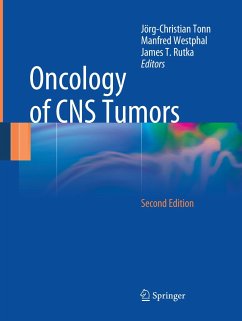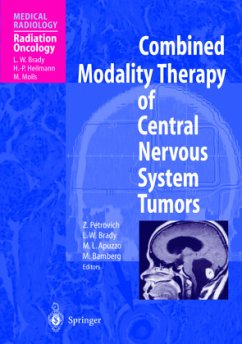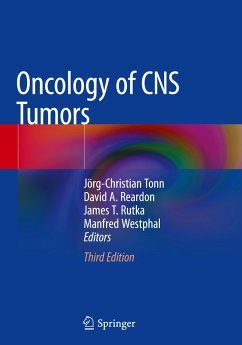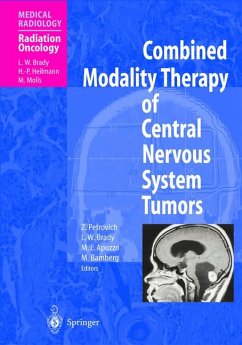
Molecular Neuro-oncology and Its Impact on the Clinical Management of Brain Tumors
Versandkostenfrei!
Versandfertig in 6-10 Tagen
76,99 €
inkl. MwSt.

PAYBACK Punkte
38 °P sammeln!
1 2 3 O. D. Wiestler , U. Schlege1 , andJ. Schramm lInstitut flir Neuropathologie, Universitatskliniken Bonn, Sigmund-Freud-Str. 25, 53127 Bonn, Germany 2Neurologische Universitatsklinik, Sigmund-Freud-Str. 25, 53127 Bonn, Germany 3Neurochirurgische Universitatsklinik, Sigmund-Freud-Str. 25,53127 Bonn, Germany In contrast to various other neoplastic disorders, there has still been no dramatic progress in the treatment of gliomas. Modem microsurgical and imaging techniques have made more tumors surgically accessible and have allowed a more extensive surgical resection. However, these new develo...
1 2 3 O. D. Wiestler , U. Schlege1 , andJ. Schramm lInstitut flir Neuropathologie, Universitatskliniken Bonn, Sigmund-Freud-Str. 25, 53127 Bonn, Germany 2Neurologische Universitatsklinik, Sigmund-Freud-Str. 25, 53127 Bonn, Germany 3Neurochirurgische Universitatsklinik, Sigmund-Freud-Str. 25,53127 Bonn, Germany In contrast to various other neoplastic disorders, there has still been no dramatic progress in the treatment of gliomas. Modem microsurgical and imaging techniques have made more tumors surgically accessible and have allowed a more extensive surgical resection. However, these new developments have not improved the clinical outcome. Recently, molecular biological studies on genes and genetic loci affected in tumors of the nervous system have yielded significant new insights into pathoge netic machanisms. Many neuro-oncologists are therefore looking forward to transla ting molecular genetic findings into novel diagnostic and therapeutic strategies for the management of thesedevastating neoplasms. We have produced this volume with the intention of highlighting major developments in both molecular and clinical neuro-oncology and of stimulating the communication and cooperation between these two fields. Two major families of growth-controlling genes have emerged from the past decade of intense research on the molecular genetics of tumors: oncogenes and tumor suppressor genes. Oncogenes are characterized by their potential to stimulate the growth of susceptible cells whereas tumor suppressor genes share a growth-inhibi ting property. A stringently controlled interplay between these two regulatory me chanisms is required to maintain a stable composition of tissues.














